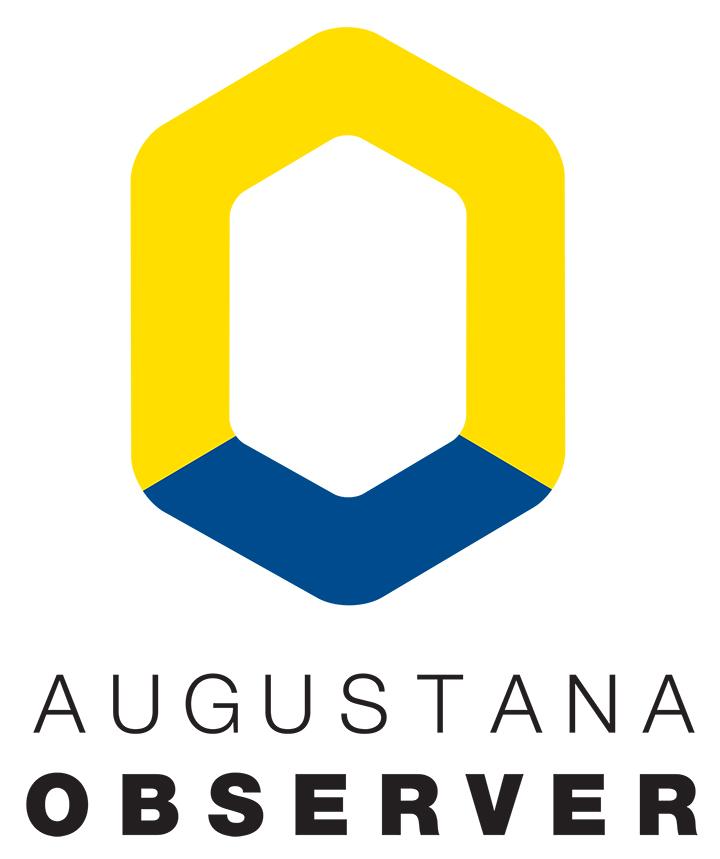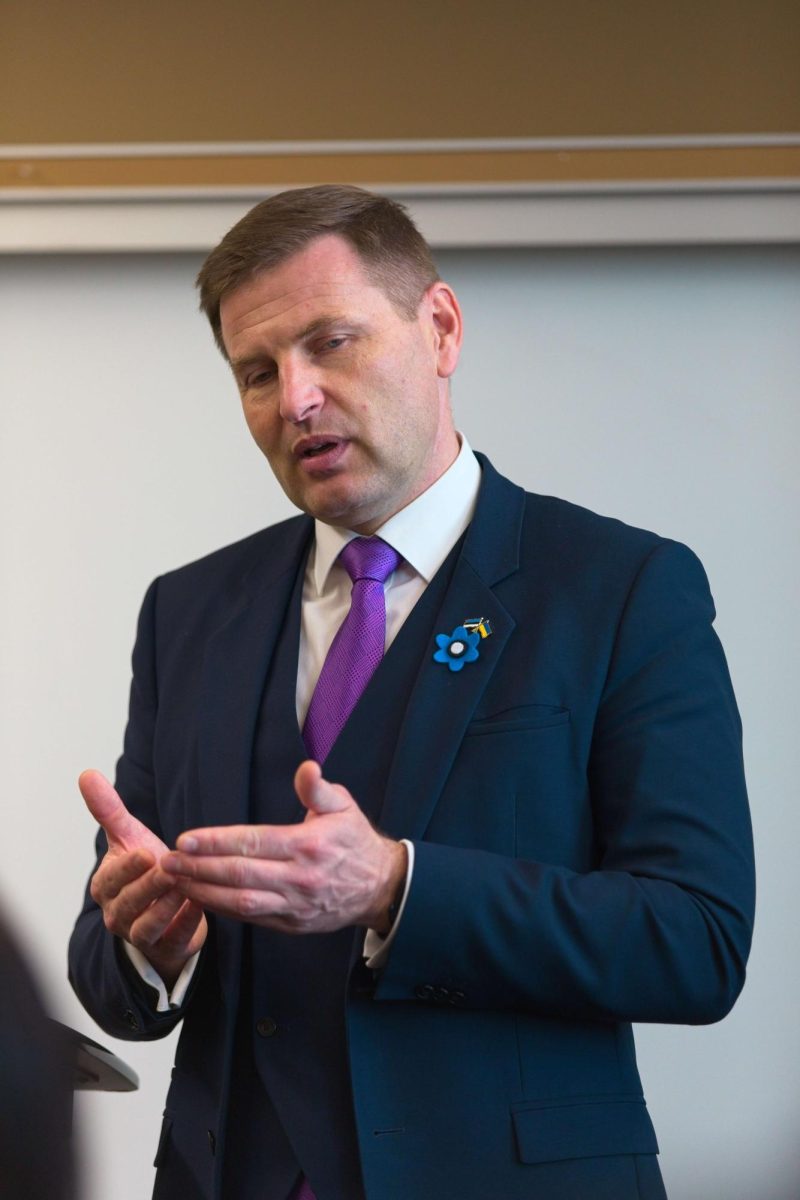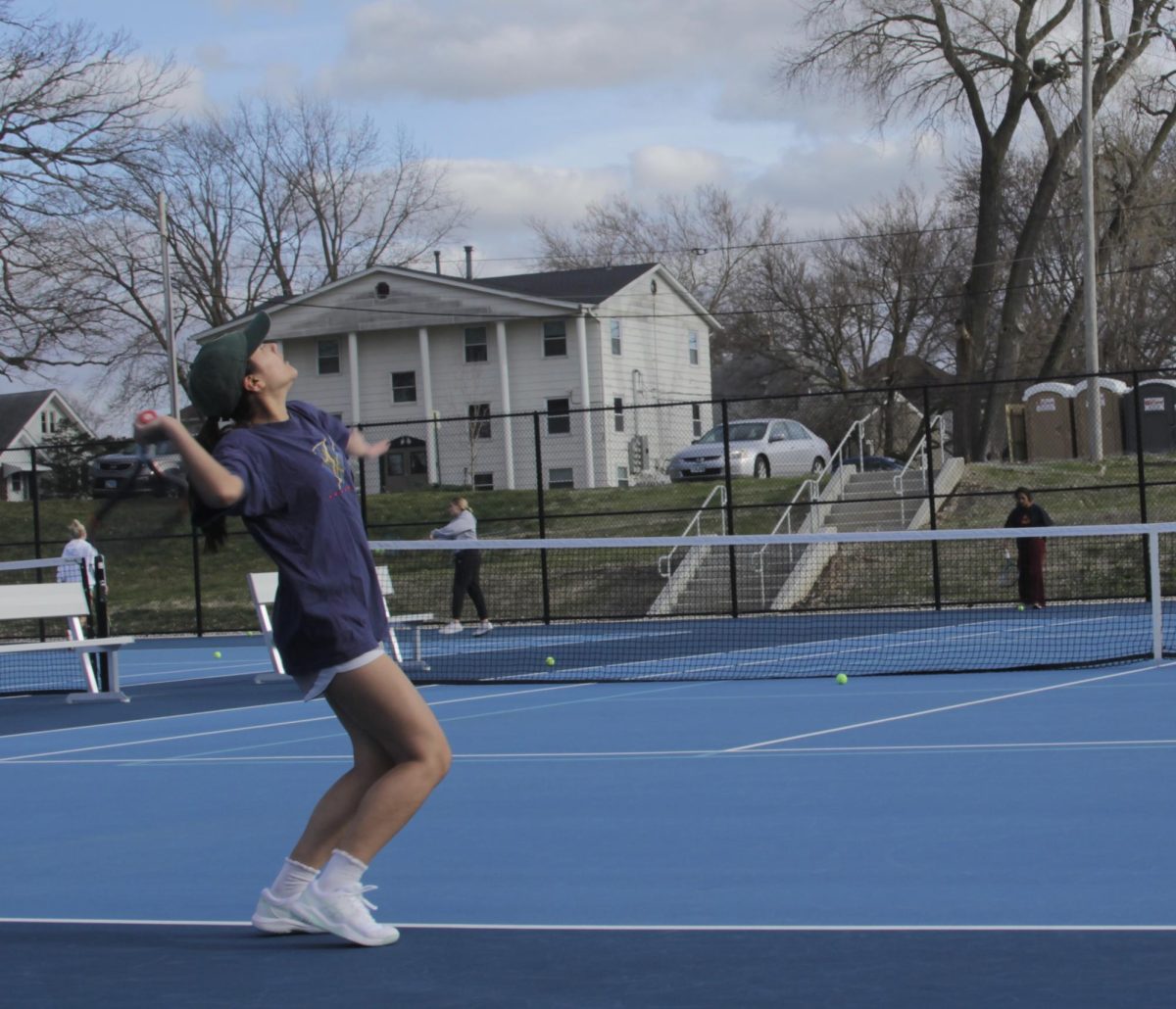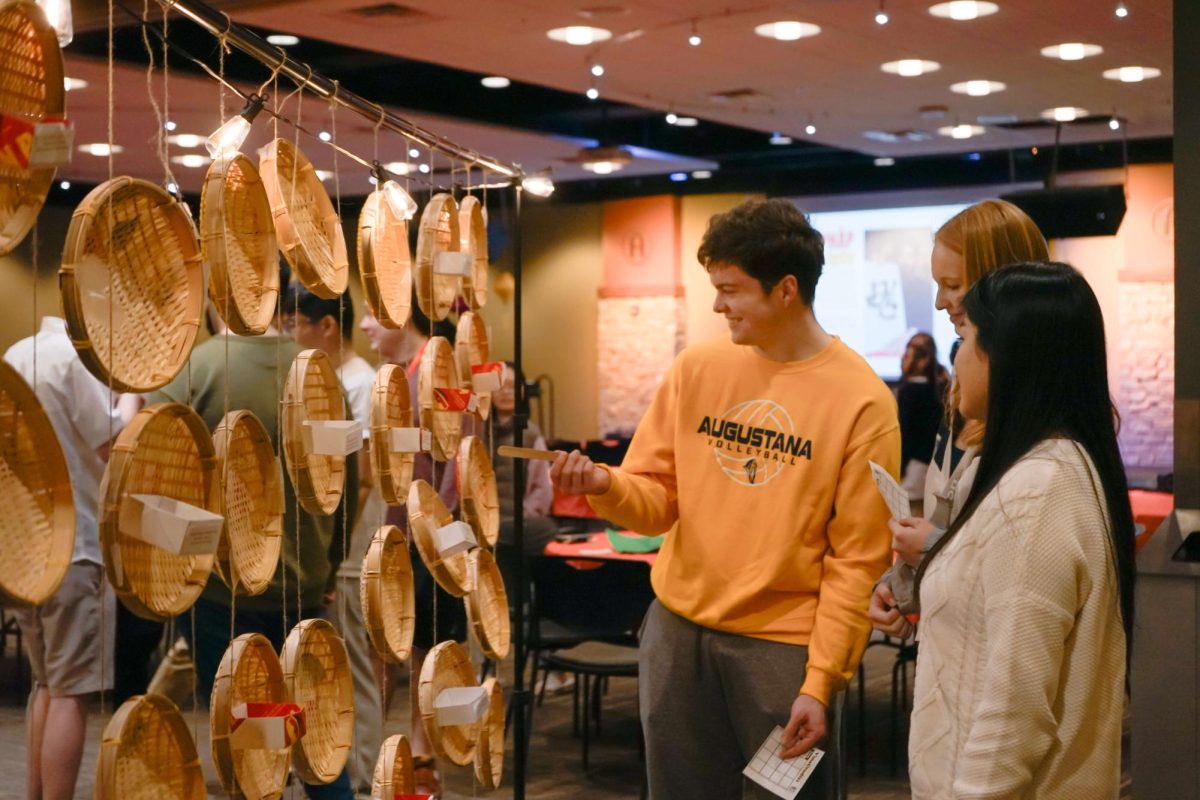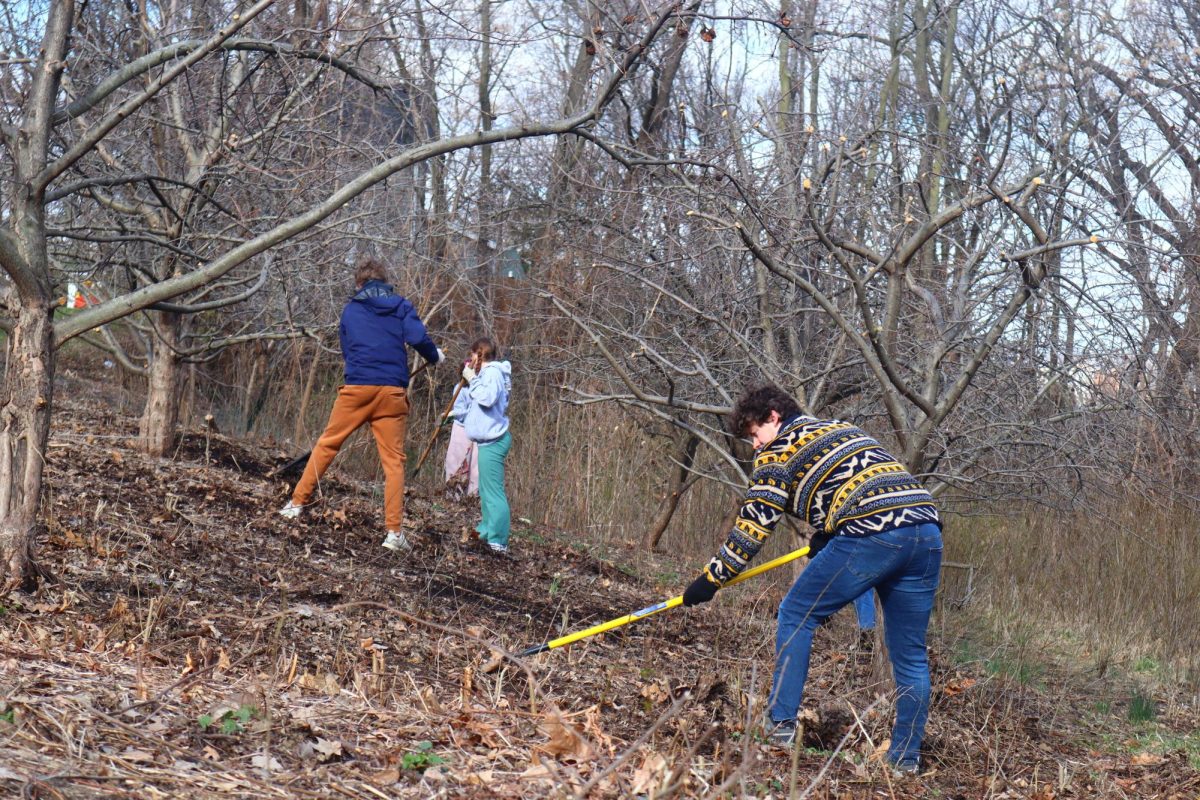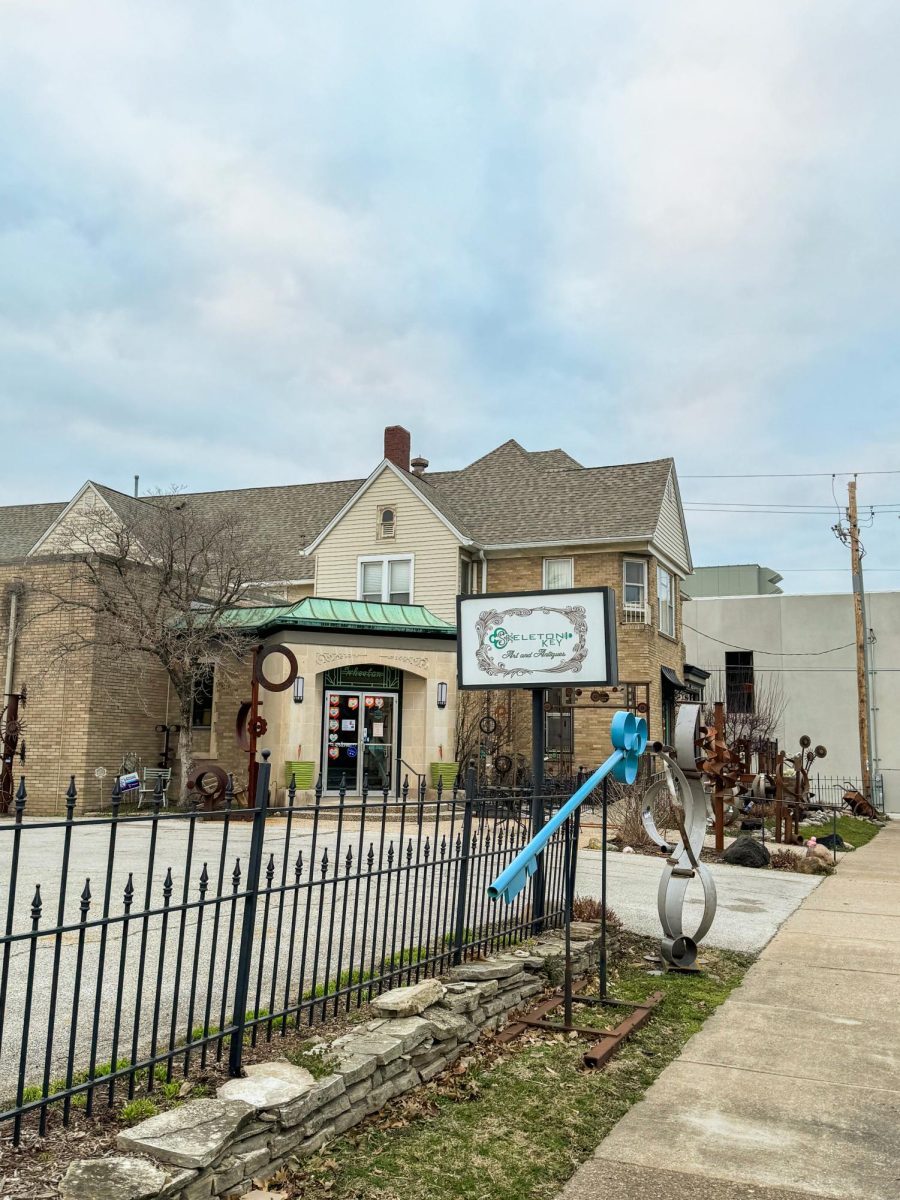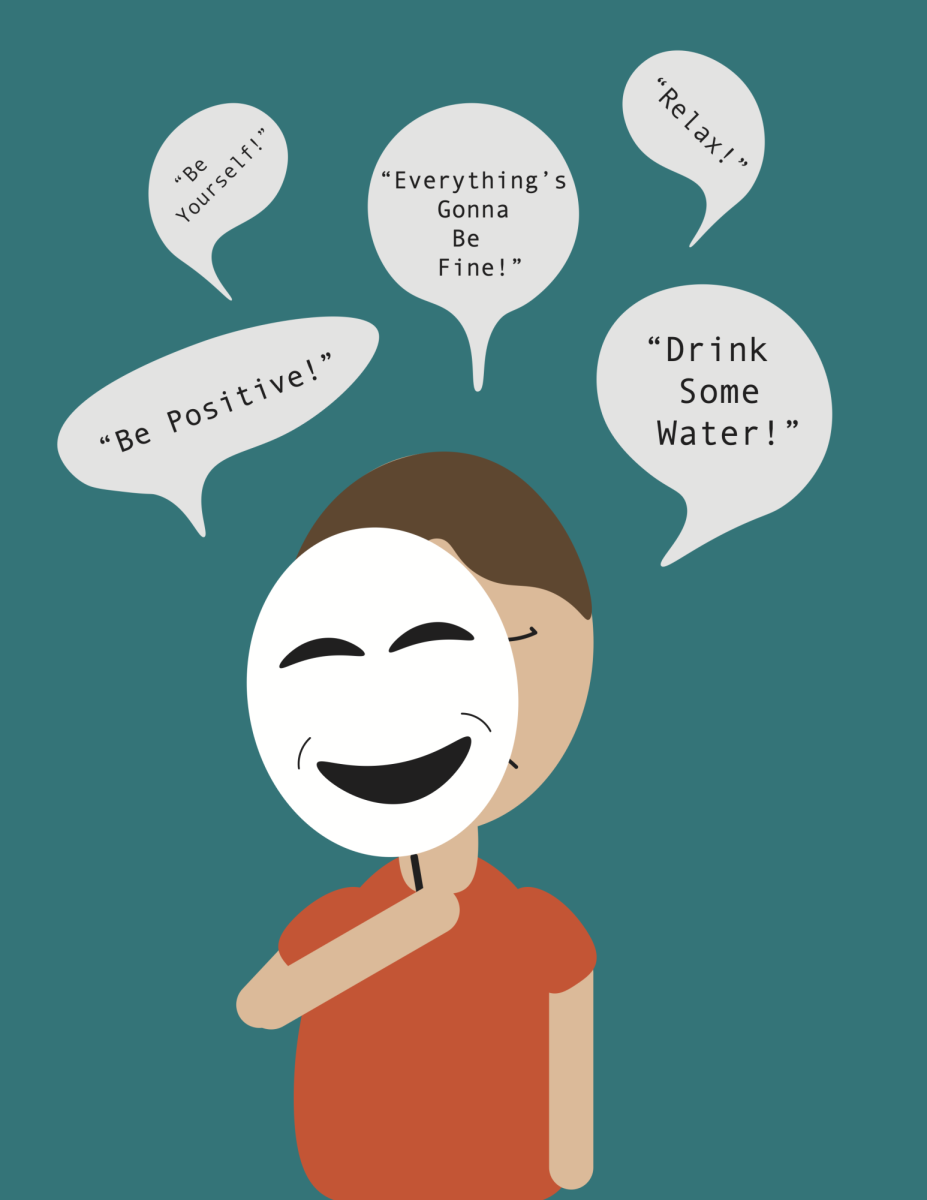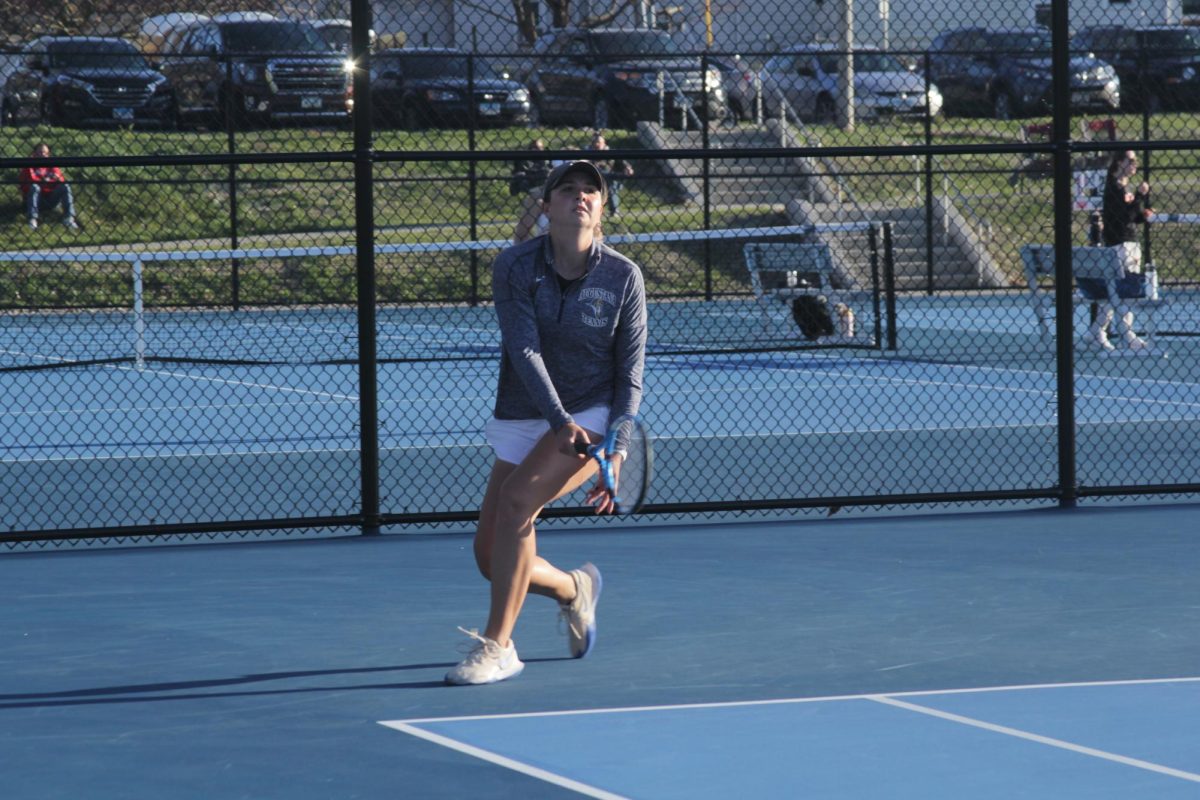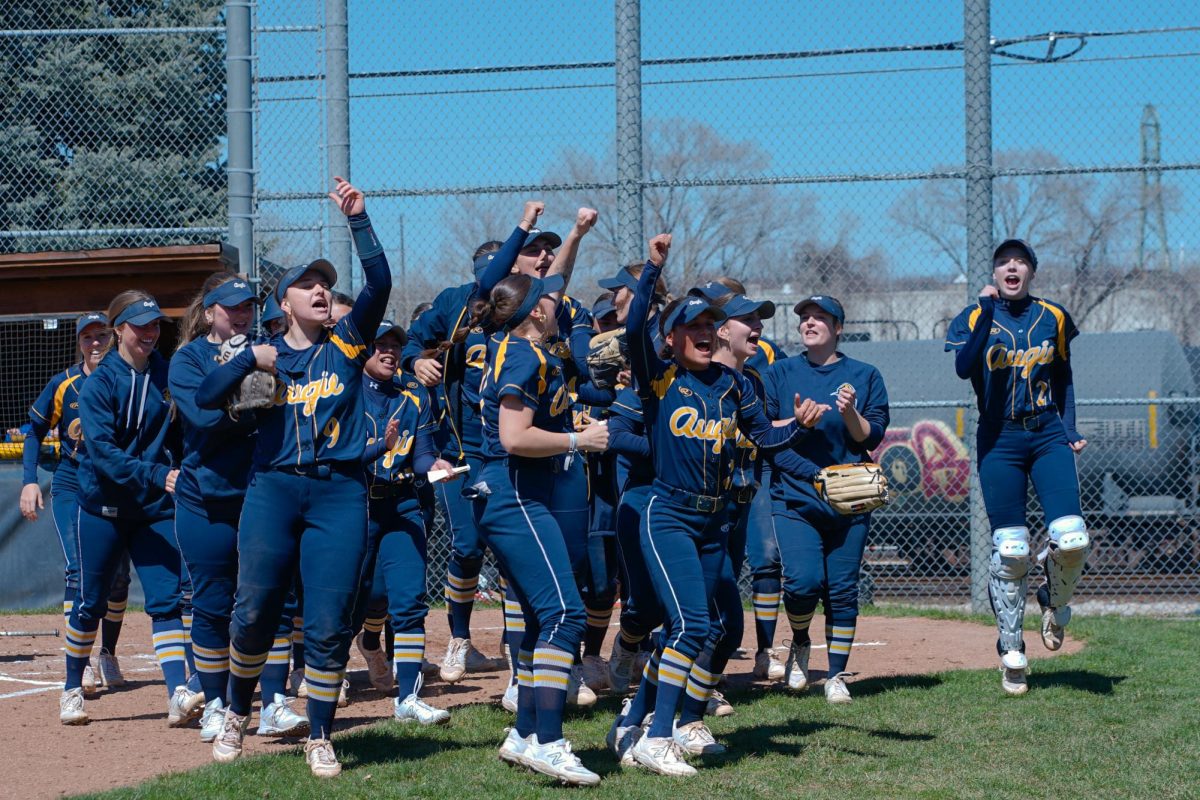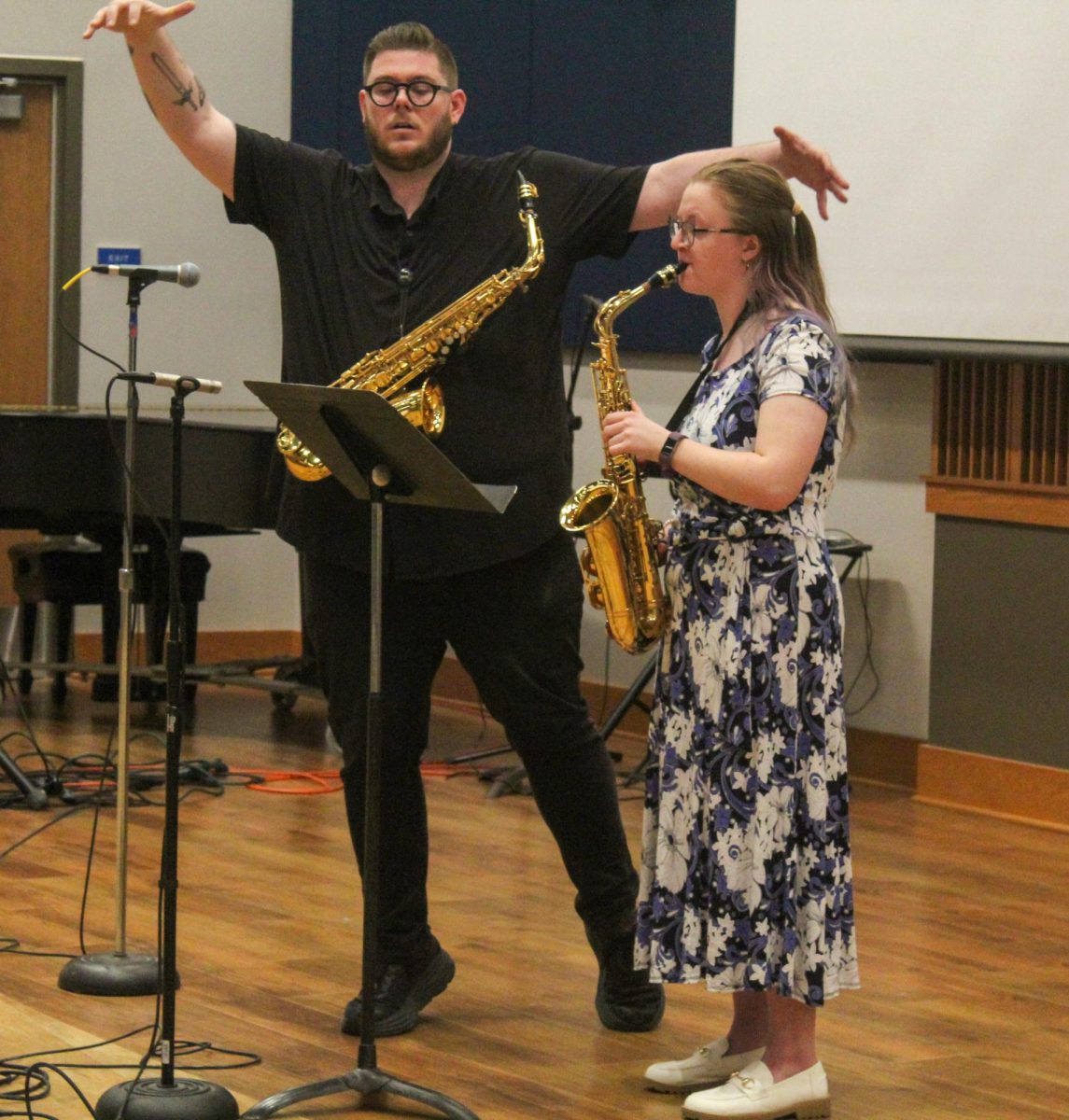Ascension Chapel is yellow-lit and serene. Students fill the first few pews; beside a table holding four wooden boxes labeled “Hope,” “Grace,” “Truth,” and “Justice,” board members of Augie NAMI and Pastor Richard Priggie lead students through quiet words and prayers in memory of those who have died by suicide. Afterwards, the attendees rise, rekindle their candles and place them in one of the boxes before leaving. “Hope” in particular holds more than the rest. Some of the attendees share their stories with Augie NAMI members, while others remain in their pews for Wednesday Night Chapel.
The candlelit vigil for suicide victims was one of many events organized by Augustana’s branch of the National Alliance for Mental Illness (NAMI) to mark Mental Health Awareness Week, held countrywide this year from Oct. 7-13. Other campus organizations collaborated and held related events, perhaps marking an encouraging shift towards greater visibility for mental health issues in the Augustana community.
“We knew when we started [Augie NAMI] that we wanted to do an event that would unite the campus,” Courtney Baker, president of Augie NAMI, said. She said that despite the packed schedules many students have during week eight, certain activities like making stress balls and practicing mindfulness could be beneficial for students dealing with that pressure.
“It’s important to celebrate this week because it would be difficult to find someone whose life hasn’t been affected by mental health, and we need to recognize that we can support each other,” student counselor Anne Oakes said of Augie NAMI’s program. “It was impressive to me that they had so many different types of activities, from stress relief to entertainment that would take your mind off an intensive study week,” she added.
“Our goal was to have one other campus group collaborate with us on every event,” Baker explained. To that end, NAMI worked with the Reading/Writing Center (RWC) to organize Mindfulness 101 on with English language learner specialist Jacob Romaniello on Monday, Oct. 8 and a reflective creative writing workshop with RWC assistant director Farah Marklevits on Thursday Oct. 11.
The Oct. 10 vigil was held in cooperation with Campus Ministries, and the Oct. 9 stress ball making event was hosted with Student Government Association (SGA). Baker said the Office of Student Life (OSL) helped with advertising and guided NAMI through the larger events. NAMI had also been in contact with Student Counseling Services and Student Success Services.
According to Baker, while board members of NAMI are not experts on everything they teach or represent, they are students who have the knowledge of these resources on campus, and can thus compile that knowledge for the rest of the student body.
“We want to get rid of the stigma around mental illness, but we understand that it can be difficult for many people, especially college students, to get the help they need,” Baker said. “So ideally, we are the bridge between students who are hurting and lost in what they’re feeling and the resources that can help.”
Marklevits spoke about the issue of mental health on college campuses and why the RWC was helping combat it. “Increasingly across the country, colleges and universities are seeing more students in need of support,” Marklevits said, adding that she and Romaniello had led their respective sessions because the topics – mindfulness and creative writing – were central to their expertise.
“Writing can be one vehicle for exploring your emotional and psychological state,” Marklevits said. “I don’t think it’s a substitute for therapy by any means, but it’s one way of understanding yourself from a different perspective that can be supportive.”
Another student group that has taken its own path to promoting mental health on campus is the Student Wellness Committee, a branch of SGA which is centered around the mental, physical and sexual health of students.
“One of our slogans is ‘building a new bridge, taking care of us all,’ Haley DeGreve, chair of the Wellness Committee and Augie NAMI’s liaison to SGA, said. “SGA is the bridge between students and administration, but what we’re building with wellness is taking care of each individual on campus.”
According to DeGreve, the committee aims to encourage collaboration between student groups to avoid students being overwhelmed with events. To this end, it has planned a self-care fair in December with Greek Council that will involve other organizations. DeGreve said the committee was also communicating with administrators about other initiatives such as setting up a health clinic on campus and hiring a counselor of color that would benefit students.
This month, the committee has also distributed their Wellness Talk sheets around campus buildings, focusing on strategies for finals week and campus safety tips. “We’re trying to get people to realize that Student Government does take your health and wellness very seriously,” DeGreve, who designed the posters, said.
Speaking on Campus Ministries’ involvement in the week’s events, Pastor Richard Priggie explained that his contribution stemmed from a desire to help atone for the church’s lack of sensitivity both past and present toward mental health issues. “There’s a stigma that mental illness is the fault of the person suffering. The church through the years has not always dealt in a loving way with persons who are suffering from mental illness,” Priggie said.
There is no denying that week eight and onwards is a difficult time for many students, both in terms of academic commitments as well as events in the off-campus world which may be hard to escape. “The news cycle is relentless with challenging material that might be difficult for people,” Marklevits said. “[Its] rhetoric is very sensational and if you’re constantly watching the news, you can have the experience of having a small heart attack every day. As a nation, it’s a difficult time.”
Some of these events include the weeks-long coverage of the sexual assault allegations against now-Associate Justice Brett Kavanaugh and the sentencing of Bill Cosby, which many are calling a milestone for the #MeToo movement.
Emilee Goad, Sexual Health and Violence Prevention Coordinator, said in an email interview, “Any time there is extensive media coverage on situations related to sexual assault or domestic violence, crisis centers and hotlines do see an increase in services due to individuals feeling triggered, feeling empowered to tell their story, or just needing a safe space to talk.”
The emotional fallout described by Goad has been felt on Augustana’s campus. “I have had several students mention that what’s going on in our culture and politics has certainly heightened their stress levels, or brought up things in their own experience that have been very difficult,” Oakes said. Counseling services has also seen a higher volume of appointments being scheduled.
However, Oakes said that she found this promising. “The national trend is that issues like anxiety and depression are on the rise, but when people in increasing numbers are contacting our services, that speaks to a decreased stigma and a willingness for people to get whatever help they need to thrive in their life.”
“I’m always really heartened when students tell me friends and peers have encouraged them to come in here,” Oakes continued. “That means that people aren’t isolating themselves, and are finding it useful to get help. Our student body tends to be really supportive of one other.”
“I’m sure that on our campus, this has been a very emotional situation for victims of sexual assault,” Priggie said, encouraging those recovering from mental and emotional trauma to seek help. He also urged students to be aware of the warning signs of depression and other mental illnesses in the people around them.
Defeating mental illness is a shared endeavour. “I don’t think I can stress too much that friends not be afraid to mention something they consider difficult,” Priggie said. “If your roommate has started missing class and staying in bed all of a sudden, the caring thing to do is to ask if they’re okay. That’s a good beginning to the conversation.”
He added, “We all have a healing role to play.”
Baker agreed that the the support of trusted friends makes mental illness easier to confront. “I think with everything in the news and events on campus, it’s important to remember that it’s okay not to feel okay,” Baker said. “But it’s okay to reach out and include someone else who can help you get through the hard feelings.”
Coping Strategies for Challenging Weeks
“Schedule your breaks. There may be a lot of academic and social demands, but find something in your life that lets you have a mental break. It could be exercising, watching a TV show, going on a walk, taking a nap. But schedule that into your studying. Don’t push yourself through those feelings – it’s easier to let the pressure out slowly than have it blow up in your face later.” – Courtney Baker, Augie NAMI president.
“The response [to emotional trauma] is often to withdraw and pull back. That’s not helpful. I would encourage those recovering from emotional trauma to reach out and seek help, from counseling services, or simply from friends.” – Pastor Richard Priggie
“It’s important to maintain your sleep hygiene and make sure you’re eating healthfully and regularly. There’s a rollercoaster approach to those daily basics that can really cause ups and downs in your mental health.” – Farah Marklevits, RWC assistant director
“Reach out to your natural supports – friends, family, organizations that you’re involved in. Come and see us in the counseling center. Sometimes it can be helpful to get involved and act for change on issues you’re passionate about. That can create a feeling of hope and optimism for the future.” – Anne Oakes, student counselor
